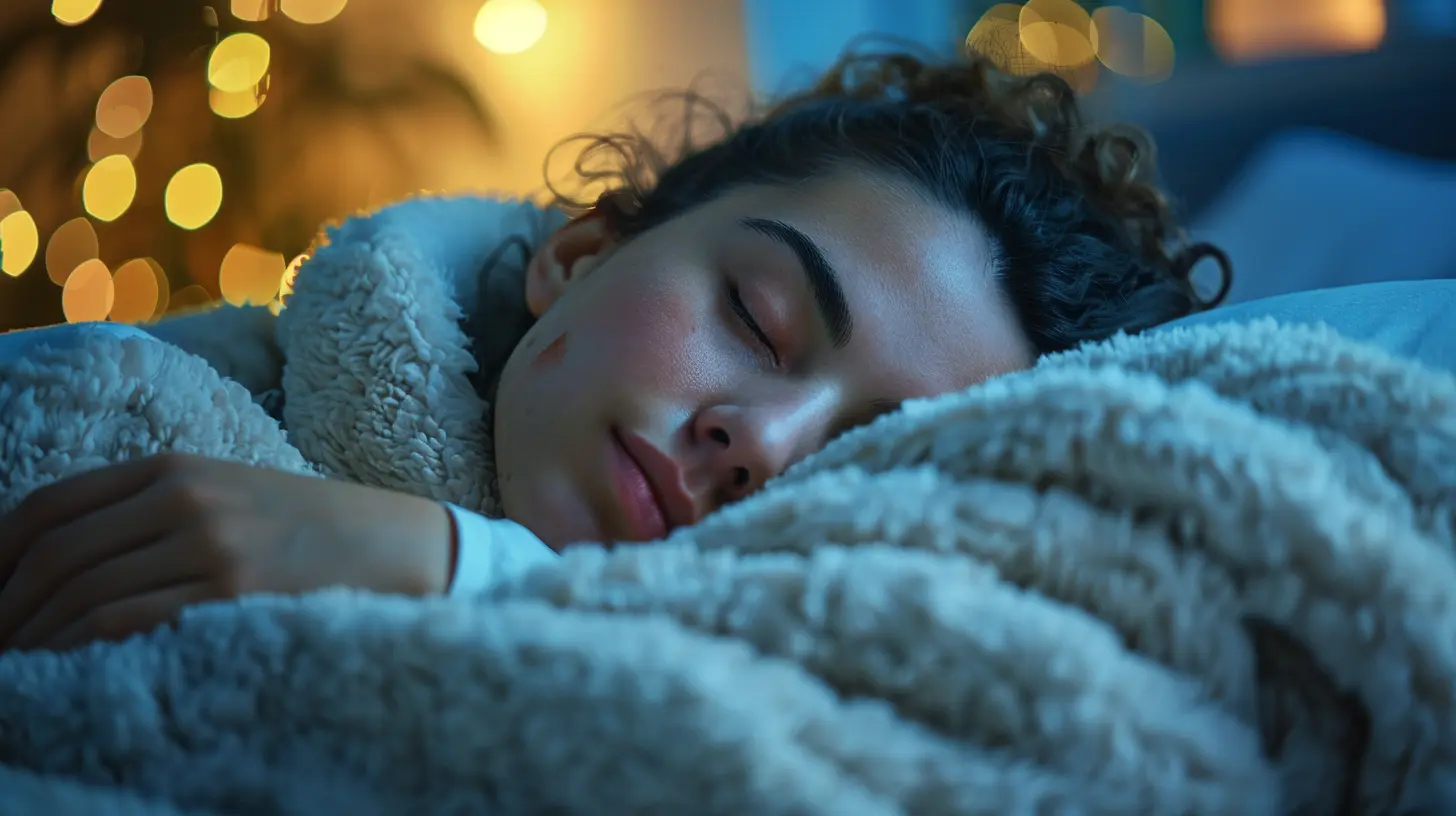Understanding the Sleep Cycle: What Happens While You’re Asleep?
6 May 2025
Sleep isn’t just about closing your eyes and drifting off into dreamland. It’s actually a complex and essential process that keeps your body and mind functioning at their best. But what really happens while you’re asleep? Why do you sometimes wake up feeling refreshed, and other times like you barely slept at all?
Let’s break down the sleep cycle and uncover what happens behind the scenes while you snooze.

What Is the Sleep Cycle?
The sleep cycle is the recurring pattern of different stages of sleep that your body cycles through multiple times each night. It consists of four main stages, divided into two categories:- Non-REM (NREM) Sleep (Stages 1, 2, and 3)
- REM (Rapid Eye Movement) Sleep (Stage 4)
Each cycle lasts about 90 to 120 minutes, and a full night’s sleep includes about four to six cycles. Now, let’s dive into what happens in each stage of sleep.

Stage 1: Light Sleep (The Drowsy Phase)
The first stage of sleep is like the warm-up lap before a big race. It’s when your body starts to relax, but you’re still in a light sleep state.What Happens in Stage 1?
- Your heart rate and breathing slow down- Your muscles relax (but you might experience sudden muscle jerks)
- Brain activity begins to decrease
- You’re easily awakened (ever felt like you were falling in your sleep?)
This stage lasts only 5 to 10 minutes, and if someone wakes you up, you might not even realize you were sleeping.

Stage 2: Light Sleep (The Transition Phase)
Now, your body starts preparing for deeper sleep. You’re still in a light sleep state, but your brain activity slows down even more.What Happens in Stage 2?
- Body temperature drops- Heart rate and breathing slow even more
- Brain waves slow down, but with occasional bursts of activity called "sleep spindles" (which help process memories and learning)
This stage lasts about 10 to 25 minutes and accounts for about 50% of your total sleep time.

Stage 3: Deep Sleep (The Restorative Phase)
This is where the magic happens! Deep sleep is the most rejuvenating stage, and it’s absolutely crucial for physical and mental recovery.What Happens in Stage 3?
- Heart rate and breathing reach their lowest levels- Blood pressure drops
- Your body releases growth hormones (essential for muscle repair and tissue growth)
- The brain clears out toxins and strengthens memory storage
This stage lasts 20 to 40 minutes in the first sleep cycle but gets shorter as the night progresses. If someone wakes you up during deep sleep, you’ll feel disoriented and groggy—ever hit the snooze button and felt worse? That’s why!
Stage 4: REM Sleep (The Dream Stage)
Now, things get really interesting—this is where dreams take center stage! REM sleep is vital for brain function, creativity, and emotional regulation.What Happens in REM Sleep?
- Your brain becomes very active (almost like when you're awake)- Eyes move rapidly under your eyelids (hence the name "Rapid Eye Movement")
- Dreams occur due to increased brain activity
- Your muscles become temporarily paralyzed (so you don’t act out your dreams)
- REM sleep supports learning, memory, and problem-solving skills
The first REM stage lasts about 10 minutes, but each REM stage gets longer throughout the night, sometimes lasting up to an hour by morning.
Why Is the Sleep Cycle Important?
A healthy sleep cycle isn’t just about getting enough hours—it’s about cycling through all these stages properly. Without it, you might face problems like:- Daytime fatigue
- Poor concentration and memory loss
- Weakened immune system
- Higher risk of heart disease, obesity, and diabetes
- Increased stress and mood swings
Skipping sleep stages (or having an abnormal cycle) can leave you groggy, irritable, and struggling to function the next day. Ever felt like you slept for hours but still woke up exhausted? Your sleep cycle might be out of sync!
How to Improve Your Sleep Cycle
Want to wake up feeling refreshed and energized? Here are some simple yet effective ways to improve your sleep cycle:1. Stick to a Sleep Schedule
Go to bed and wake up at the same time every day—even on weekends. This helps regulate your body’s internal clock.2. Create a Relaxing Bedtime Routine
Wind down before bed with calming activities like reading, meditation, or taking a warm bath. Avoid screens (yes, that means putting your phone away!).3. Optimize Your Sleep Environment
Keep your bedroom cool, dark, and quiet. Invest in a comfortable mattress and pillows to improve sleep quality.4. Watch Your Caffeine & Alcohol Intake
Caffeine and alcohol can mess with your sleep cycle. Avoid caffeine in the afternoon and limit alcohol before bed.5. Exercise Regularly
Regular physical activity helps regulate sleep, but avoid working out too close to bedtime—it can keep you wired!6. Manage Your Stress Levels
Anxiety and stress can keep your brain racing at night. Try journaling, deep breathing, or meditating to calm your mind before bed.7. Get Natural Sunlight During the Day
Exposure to sunlight helps regulate your body’s natural sleep-wake cycle (circadian rhythm). Aim for at least 30 minutes of sunlight daily.8. Avoid Long Naps
Naps can be great, but long naps (especially in the afternoon) can interfere with nighttime sleep. Stick to 20-30 minute power naps if needed.
Final Thoughts
Understanding the sleep cycle is the key to unlocking better sleep. It’s not just about closing your eyes for 8 hours—it’s about cycling through the different sleep stages properly. When your sleep cycle is healthy, you wake up feeling refreshed, focused, and ready to take on the day!So, if you’ve been struggling with sleep, start making small changes to improve your sleep cycle. Your body and mind will thank you for it!
all images in this post were generated using AI tools
Category:
Sleep HealthAuthor:

Laura Hudson
Discussion
rate this article
4 comments
Holly McAleer
This article beautifully breaks down the mystery of our sleep cycles! 💤 It’s so fascinating to think about all the incredible processes happening while we snooze. Can’t wait to use this knowledge to improve my own sleep habits! Thank you!
May 11, 2025 at 4:33 AM

Laura Hudson
Thank you for your kind words! I'm glad you found the article helpful for improving your sleep habits. Sweet dreams! 💤
Paris McQuade
Thank you for this informative article! Understanding the sleep cycle has helped me appreciate the importance of quality rest. I’m eager to apply these insights for better sleep and overall well-being. Your work is truly appreciated!
May 10, 2025 at 4:27 AM

Laura Hudson
Thank you for your kind words! I'm glad you found the article helpful—wishing you restful nights and improved well-being!
Faenor McAnally
Great insights! Understanding sleep cycles is essential for health.
May 9, 2025 at 3:33 PM

Laura Hudson
Thank you! I'm glad you found the insights helpful. Understanding sleep cycles can truly transform our approach to health.
Juniper Henson
Great article! Understanding the sleep cycle is essential for better rest and overall health. Thank you for shedding light on such an important topic—sweet dreams await!
May 6, 2025 at 4:45 AM

Laura Hudson
Thank you for your kind words! I'm glad you found the article helpful for understanding the sleep cycle. Sweet dreams to you too!



